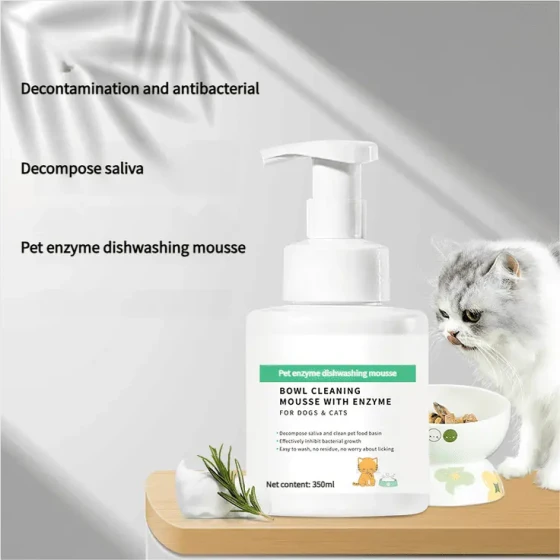Kitten Beaten to Death for Stealing Food_Reflection on Tragedies Caused by Improper Pet Discipline
In recent years, pets have entered thousands of households, becoming important companions in our lives. However, accompanying this trend are pet behavior problems and improper disciplinary methods that have led to many tragedies. Incidents like a “kitten beaten to death for stealing food” are heartbreaking and serve as a warning. This is not just a case about pet discipline, but a profound reflection on how we, as owners, should take responsibility and harmoniously coexist with these small lives using scientific and humane methods.
Behaviors such as pets stealing food often reflect their nature and needs, rather than intentional “misbehavior.” Punishments like hitting or scolding pets not only fail to effectively correct behavior but may cause serious negative consequences, even resulting in tragedy. Understanding cat behavior patterns, mastering proper guidance techniques, and recognizing the harm of improper punishment are crucial to avoiding such tragedies.

Why Do Kittens “Steal Food”? Exploring the Reasons Behind the Behavior
Cat stealing food often stems from their nature. As natural hunters, they have a strong interest in food and need to seize every opportunity to obtain food in the wild. When food is left casually at home, cats’ curiosity and foraging instincts are triggered.
Besides innate nature, there can be many other reasons for cats stealing food:
- Hunger or Nutritional Deficiency: Even if you provide cat food on time, if the cat is in a growth stage (especially kittens) or the food is not nutritionally balanced, they may seek additional food sources due to hunger. Some studies show cats with insufficient calorie intake are more likely to exhibit persistent vocalizing behaviors, possibly including food-seeking.
- Boredom or Lack of Stimulation: A lack of sufficient play and environmental stimulation can cause cats to feel bored and stressed, leading them to seek food or engage in destructive behaviors to relieve their emotions.
- Desire for Attention: Some cats discover that “stealing food” can attract owner attention, whether positive or negative, and consider this a form of interaction.
- Food’s Own Appeal: Human food tends to be more fragrant and varied than cat food, naturally attracting cats.
- Health Issues: In rare cases, certain illnesses may cause abnormal appetite or behavioral changes, resulting in food stealing. If a cat suddenly exhibits unusual food-stealing behavior, after ruling out other causes, it’s best to consult a veterinarian.
By recognizing these potential reasons, we can better understand cats’ behavior and adopt more targeted solutions rather than simply blaming them for “bad” habits.
The Cost of Punishment: Why Hitting and Scolding Are Harmful to Pets
Many people’s first response to pet misbehavior is punishment, especially through hitting or scolding. However, many studies and practices demonstrate that physical punishment is not only ineffective but harmful.
- Creates Fear and Distrust: Physical punishment causes cats to feel fear and anxiety. They associate this negative experience with you, damaging the trust between you. A cat that fears its owner may become timid, withdrawn, or even aggressive, believing attack is a form of self-defense.
- Inability to Understand the Reason for Punishment: Cats think differently from humans and have brief short-term memory. If you punish them some time after they steal food, the cat likely won’t understand why it was punished, leading to confusion and unease.
- May Exacerbate Bad Behavior: Sometimes cats perceive punishment as a form of attention—even negative attention is better than being ignored. This may encourage repeated misbehavior to attract your notice. Punishment may also cause additional behavioral problems like inappropriate elimination, excessive grooming, or increased aggression.
- Potential Physical Harm: Physical punishment can cause injuries such as bruises, fractures, or internal damage.
- Legal and Ethical Aspects: Animal abuse is illegal in many countries and regions, violating basic animal welfare principles. Although laws against animal abuse are still being improved in our country, social condemnation of abuse is growing, and such behavior contradicts public morality.
Instead of trying to stop bad behavior through punishment, it is better to focus on understanding cats’ needs, improving their environment, and applying scientific training methods.
Scientific Discipline: How to Guide Kittens to Develop Good Habits?
The tragedy of a “kitten beaten to death for stealing” is essentially a severe case of improper pet discipline. Proper pet discipline is not based on violence and punishment but on understanding animal habits and positive guidance.
Here are some scientifically effective cat discipline methods:
- Prevention Is Key: The most effective method is to eliminate opportunities for cats to steal food. Store food in cabinets or containers out of cats’ reach, and don’t leave food carelessly on tables or countertops. During meals, don’t leave cats in rooms where they can easily access food.
- Regular and Measured Feeding: Ensure cats receive sufficient and nutritionally balanced food, and establish regular feeding times. Feeding 2-3 times a day (kittens may need more) and avoiding free-feeding helps cats develop healthy eating habits and reduces hunger-driven stealing.
- Provide a Rich Environment: Offer plenty of toys, cat trees, scratching posts, etc., fulfilling cats’ needs for climbing, scratching, and playing to expend energy and reduce boredom-induced behavior problems. Puzzle toys are also a good choice to simulate hunting challenges.
- Positive Reinforcement Training: When cats show the behavior you want to see, such as sitting quietly while you eat, promptly reward them with treats, verbal praise, or petting. Positive reinforcement helps cats associate good behavior with rewards and encourages repetition of good behavior.
- Distract Attention: If you catch a cat about to steal food, use toys or sounds to divert its attention and then lead it away from the food.
- Immediate, Gentle Intervention: When bad behavior occurs, intervene gently but immediately. For example, say “No” in a low voice or gently carry the cat away. Don’t punish after the fact, as cats cannot make such associations.
- Understand Cat Body Language: Observe ears, tail, and posture to understand their emotional state. If a cat appears anxious or stressed, find and solve the underlying cause.
- Seek Professional Help: If your cat’s behavior problems are severe or complex, don’t struggle alone. Consult animal behaviorists or professional trainers who can provide expert guidance and assistance.
Please remember that training requires patience and love, and every cat learns at a different pace. Building a good interactive and trusting relationship with your cat is the foundation for solving behavior problems.
Frequently Asked Questions
Q: Does a cat stealing food mean it doesn’t love me or is deliberately trying to upset me?
A: Cats stealing food is usually driven by their nature, hunger, boredom, or interest in food, not aimed at you personally or as deliberate provocation. They do not understand human moral concepts; stealing is simply satisfying their needs or exploring their environment.
Q: How can I tell if my cat is stealing because it’s hungry or just greedy?
A: If you provide high-quality cat food on a scientific schedule and the cat still steals frequently, it might not only be hunger. Observe the cat’s weight, mental state, and if other behavior issues accompany the stealing. If concerned, consult a veterinarian.
Q: Can using water sprays or loud noises stop cats from stealing food?
A: Some people use water sprays or loud noises to stop bad behaviors. Although this interrupts the behavior momentarily, it is a form of punishment and may lead to negative effects, such as fear of the spray bottle or misunderstanding the real wrong. Positive reinforcement and environmental improvement are recommended instead.
Q: If I can’t discipline my cat well, should I give up?
A: Abandoning pets is often the last and most irresponsible choice. Many behavioral issues can be improved scientifically. If you feel overwhelmed, seek professional behavior consultation or trainers and learn from experienced pet owners.
Conclusion
The tragedy of a “kitten beaten to death for stealing” reminds us once again that pets are not objects; they are lives needing careful care and proper guidance. Pet behavior problems are not terrible; what is terrible is our lack of understanding and patience, resorting to wrong or extreme measures.
Scientific and civilized pet care requires continual learning and reflection. Starting from understanding cat behavior, using positive and humane discipline, providing a rich environment, and enough love, we can truly build deep relationships with our feline companions and create a harmonious and beautiful home together. Hopefully, such tragedies will no longer occur in the future, and every small life can be treated gently.





